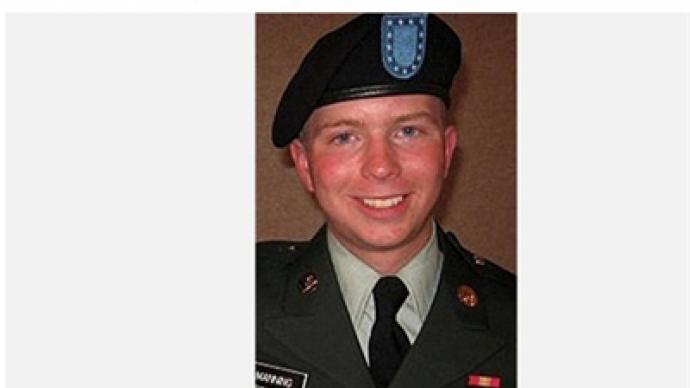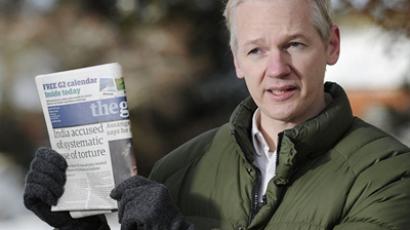In Assange limelight Bradley Manning almost forgotten

Julian Assange conducts interviews from a house in England, but PFC. Bradley Manning, the soldier believed to be responsible for leaking classified cables to WikiLeaks, sits in solitary confinement on a US military base.
Few have followed the treatment and details surrounding Manning’s imprisonment, however a group of psychologists are calling on the US military to refrain from using solitary confinement on the grounds it may have severe psychological effects on those subject to the treatment. Stephen Soldz, the president of Psychologists for Social Responsibility explained that isolation can have dubious affects on an individual and further, holding a person in that accord that has not been charged or convicted is wrong. “One of the aspects of psychological torture, one of the techniques used is isolation,” he explained. “He’s kept in his cell 23 hours a day. He’s not allowed to even exercise. If he tries to do push-ups they go in and stop him. He’s not allowed to sleep during the day. He has virtually nothing to do.” He explained, this type of isolation is harmful to people.“People live in a social environment,” Soldz remarked. “When we are isolated from that we do not do well.”Isolation of this nature can induce depression, listlessness, hopelessness, delusions and even thoughts of suicide. In addition, it impedes that ability of the individual to think clearly and cooperate with attorneys, lawyers and function for an adequate legal defense. His inability to operate fully can impede his access to a fair trial. Abuse leads to a lack of clarity and an inability for the person to provide accurate information; “Things like solitary confinement are counterproductive,” Soldz argued.“As one veteran interrogator said to me, if I want to interrogate someone, I want him to get ten hours sleep before. I don’t want him to be sleep deprived because I want him thinking clearly,” he explained. “If you want good information you need people who are clear.”Soldz argued isolation is both unusual and inhumane treatment that violates US and international law. Although Assange has been receiving all the attention, many wonder should he be? Is Assange truly a Journalist? Joel Simon, the executive director of the Committee to Protect Journalists explained that whether Assange is a journalist or not is irrelevant, the important issue is whether the act of disseminating information to the public unfriendly to the government will be prosecuted under the Espionage Act. If he is, it will have a major impact on journalists in the US and on press freedom globally, he argued. For this reason, it is important to keep the debate also focused on press freedom and the rights of journalists.“The first amendment of the Constitution guarantees press freedom in the United States and the Espionage Act, there has never been a successful prosecution of a journalist or anyone for disseminating information. So, the notion that somebody could be prosecuted for disseminating information under the Espionage Act, in our view, would open the door for subsequent prosecutions potentially of journalists and weaken the protection that journalists in this country currently enjoy,” said Simon.It is important to fight for continued press freedom, whether the focus is on Assange himself or otherwise. The debate should focus on the principle of a free press and the right to disseminate information. “Should they decide to pursue criminal charges under the Espionage Act, it will be applied extraterritorially, in other worlds, outside the United States. Potentially, journalists around the world who report on or publish information about classified activities of the US government might feel that they too could be subject to prosecution,” he explained.The implications of this are global; it is much bigger than WikiLeaks or Assange, Simon argued.













